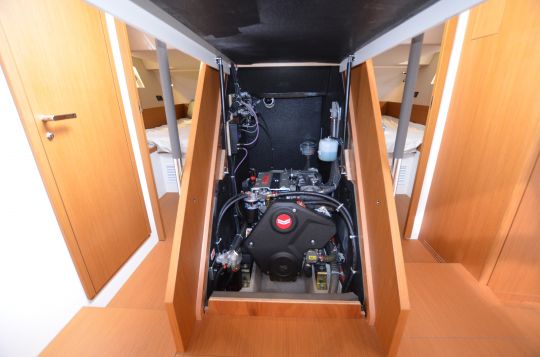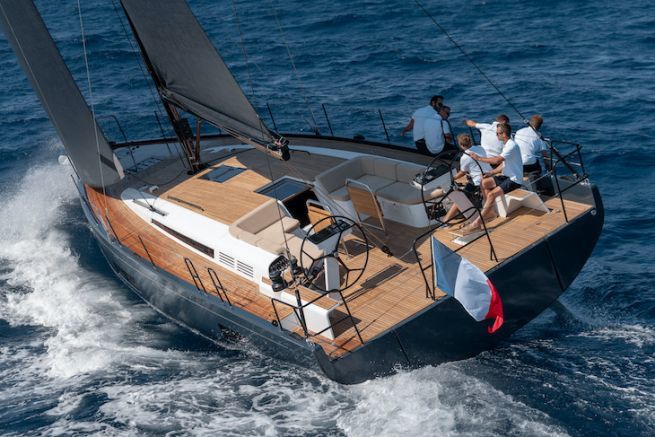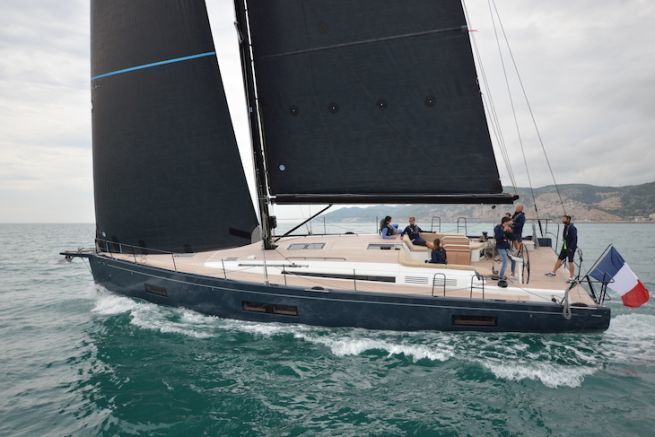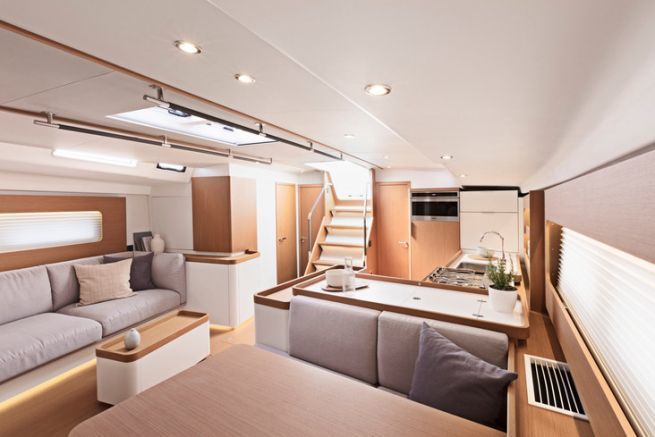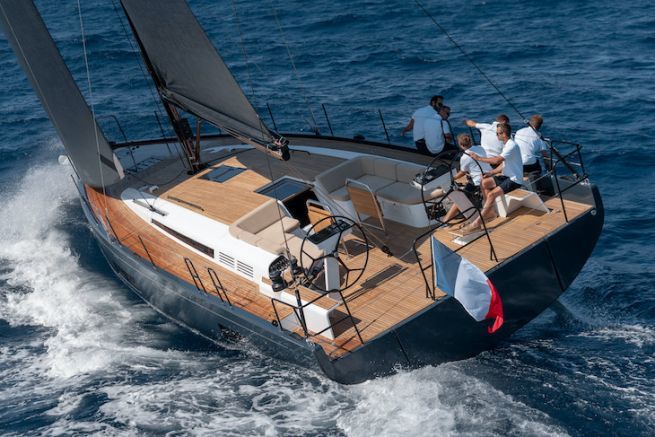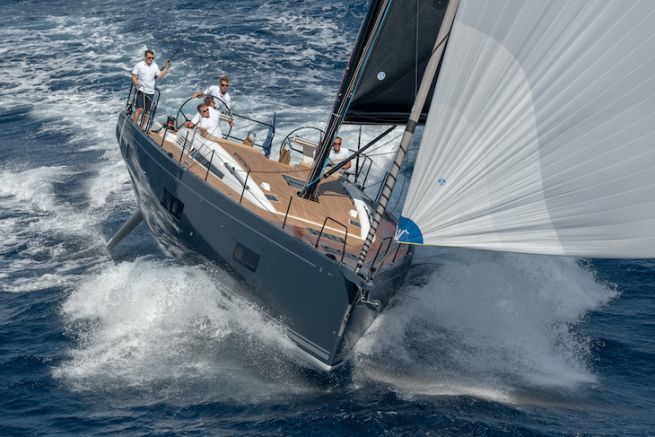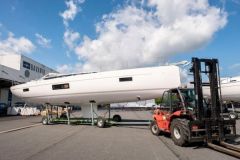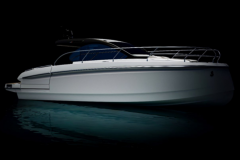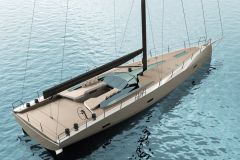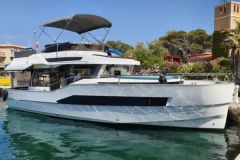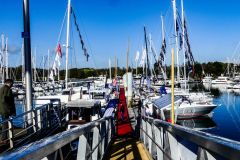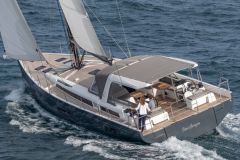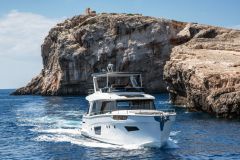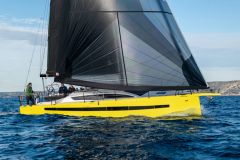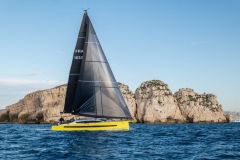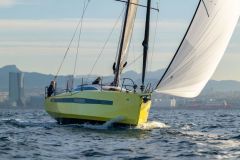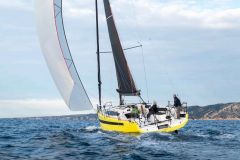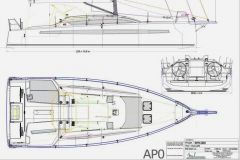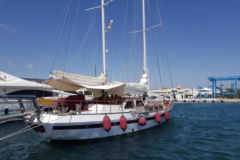An evolutionary bridge plan

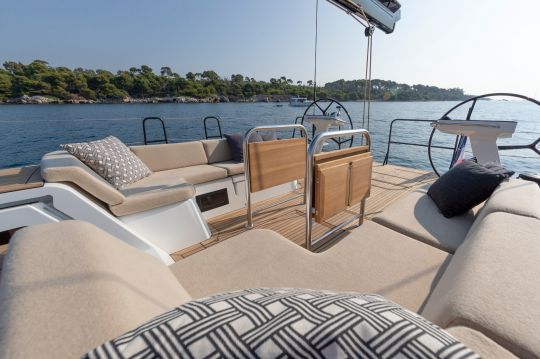
The treatment of the cockpit with the relaxation area towards the descent and the manoeuvring area at the rear is a model of evolution. The large width is used to place two tables with a central passageway. The helm stations are surrounded by an ergonomic area for solo or crewed manoeuvres. A recess at the rear of the foredeck provides a bench around the helm, which facilitates the fitting of the sheets and communication between crew members. The fluidity of the traffic is the big winner of this deck design and ten people never get in the way when sailing or at anchor. Better than a flawless one.
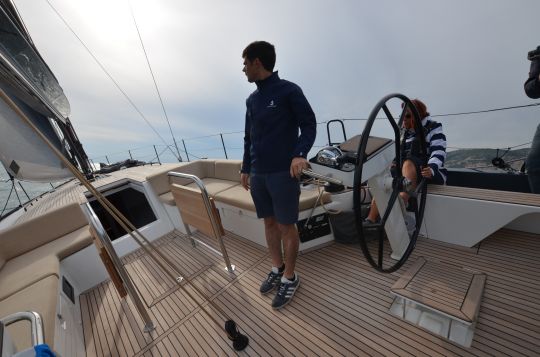
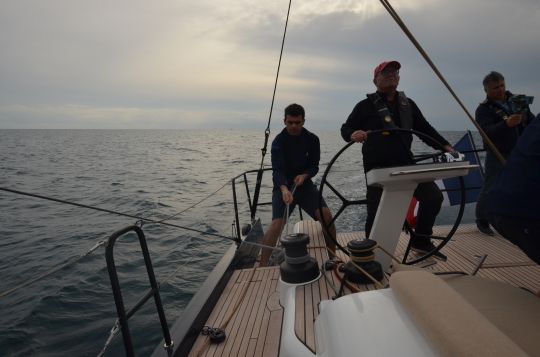
Rowing at plumage height
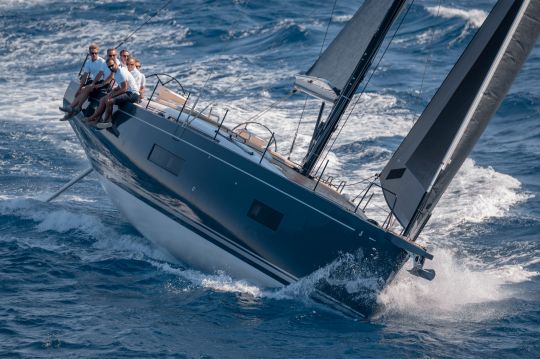
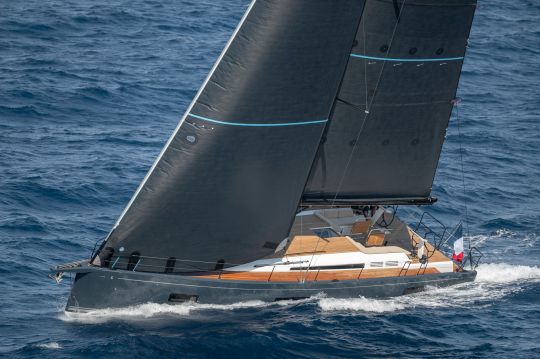
It goes without saying that this first version is equipped with the best options in rigging, ballast, sails and deck fittings, which, together with the hull colour and teak deck, give it an air of natural superiority. Let's see if it confirms itself on the water.
From the first close edges the tone is set. A speed oscillating between 7 and 8 knots at around 30° to the apparent wind is immediately reached. A mockery is translated into acceleration, the heel is accentuated, but the helm remains light and diabolically precise. No need for a long briefing to let go of the helm, just let go and the boat continues on its way.
We measure the huge advantage of virtual hull basin development, the balance is perfect. This will avoid frustrations for the less experienced who will be able to steer this exceptional machine and will give wings to the hardened trimmers to reach the firmament.
At full beam, ten knots are reached with the asymmetrical spy of 254 m² and the next day in a slackening breeze, the seven knots of true wind are displayed on the B&G screens at the foot of the mast.
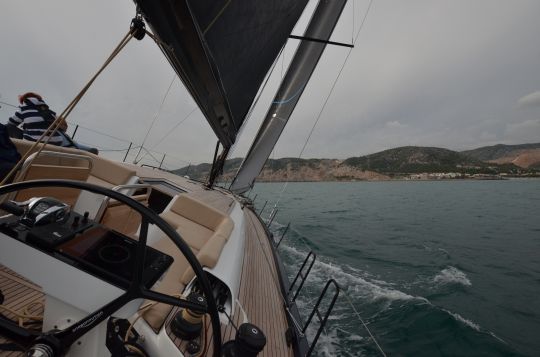
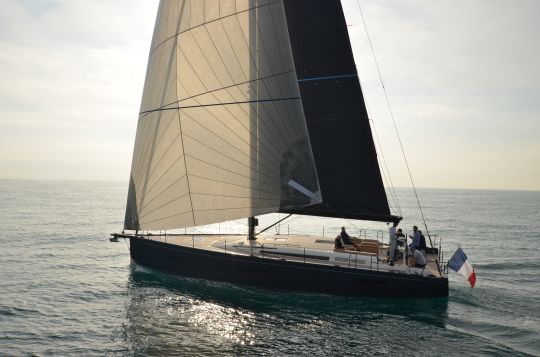
A strict weight centering
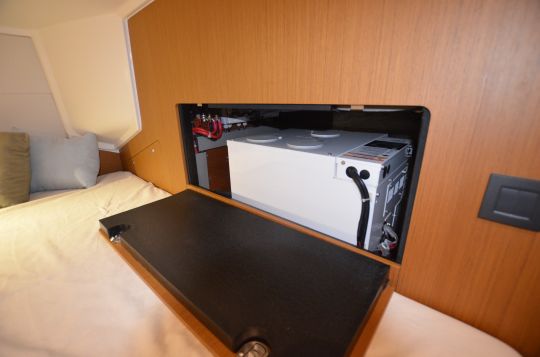
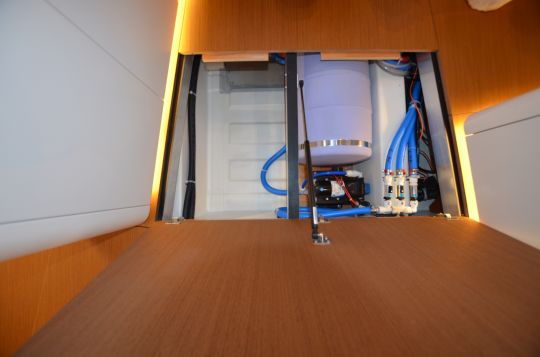
This fine balance is not upset by the placement of technical elements. Generator, water tanks and even the dinghy are rigorously centred longitudinally. Here again, the width is a very profitable asset.
The heavy engine hood is mounted on hydraulic cylinders. Its soundproofing is good and with the 110 hp Yanmar engine of our test, only 2200 rpm is needed to cruise quietly at 8.5 knots.
